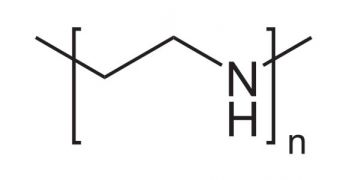A type of polymer called polyethyleneimine (PEI) can apparently act as an adjuvant to antiviral vaccines, eliciting a more intense response from the immune system, and providing more protection against future infections. The finding was made by researchers at the Oxford University, in the UK.
The chemical was thus far demonstrated to boost the efficiency of vaccines against the HIV, herpes and fly viruses. Details of how it functions appear in the latest issue of the top scientific journal Nature Biotechnology, Science Blog reports.
In a study carried out on unsuspecting lab mice, experts administered a droplet of PEI nasally, and then exposed the tiny rodents to a lethal dose of the flu vaccine. The mice didn't get the memo, and all of them survived. Obtaining such a complete level of immunization was never done before.
“This gives us confidence that PEI has the potential to be a potent adjuvant for vaccines against viruses like flu or HIV, though there are many steps ahead if it is ever to be used in humans,” says Oxford Dunn School of Pathology professor Quentin Sattentau, the leader of the study.

 14 DAY TRIAL //
14 DAY TRIAL //